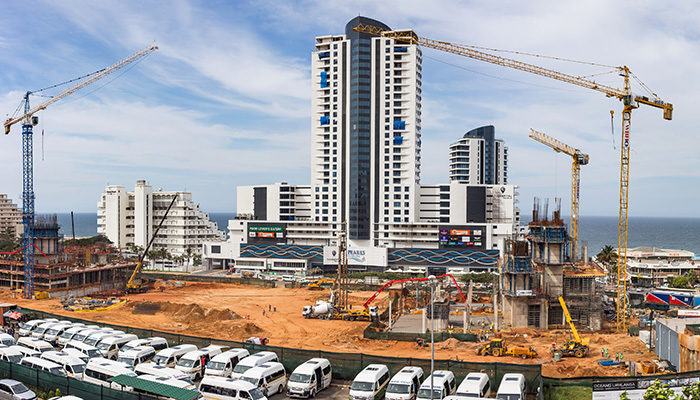Increased government spending on infrastructure projects will be needed to help the construction sector gain stability and eventually recover from the impact of the Covid-19 pandemic.
This is the conclusion reached in a comprehensive survey commissioned by the Construction Industry Development Board – cidb – among more than 825 contractors in all nine provinces.
The poll which reflects the state of the construction industry in the time of Covid_19 was done by the cidb Centre of Excellence in the Department of Quantity Surveying and Construction Management of the University of Johannesburg.
It measured the impact of the Covid-19 pandemic on cidb-registered contractors in grades 2 to 9 and made recommendations on the steps that can be taken to support the construction industry during periods of reduced economic activity.
Mr Cyril Gamede, CEO of the cidb, says the survey results give greater insight into the challenges facing the construction sector in unprecedented times. “It is part of our mandate to support an industry that provides the physical infrastructure which forms the backbone of the South African economy.”
The survey shows that the construction industry will need significant support to cushion the short-, medium-, and long-term effects of job losses among workers, loss of revenue for organisations and the potential bankruptcy of companies, says Dr Ntebo Ngozwana the cidb Research Director who led the survey.
Government can support the sector through tax benefits, the fast-tracking of tender approvals, prompt payment of outstanding invoices and improvements to the effectiveness of the Unemployment Insurance Fund
The study reveals the interdependence of the different sectors of the industry and highlights the importance of the public sector in supporting the profitability and sustainability of construction companies.
“Social distancing and extensive sanitation are going to be the ‘new normal’ in the workplace,” says Dr Ngozwana. “Construction companies that will survive this era will be flexible and willing to put in place measures to mitigate the impact of the current pandemic, but also future disruptions that may impact business activities.”
It also highlighted the need for the industry to embrace technological advancements so that its future functionality is not totally dependent on extensive physical contact.
More than 60% of the 825 respondents are contractors while project managers, engineers and quantity surveyors also participated. Almost 75% of them have more than five years’ experience in the industry and more than 90% are owned by black South Africans.
The vast majority of participants believed that the outbreak would have a negative impact on their business, particularly revenue. The biggest concern was the postponement of construction projects or significant delays to activity.
Late payment of contractors for work already done was the top concern of respondents, especially in grades 2 to 4 and 5 and 6. Respondents operating in the higher grades – 7 to 9 – listed delays in the awarding of already priced tenders as the most significant challenge.
Other concerns raised across the spectrum includes corruption in both public and private projects, illegal invasions of construction sites, civil unrest due to higher unemployment and the lack of business continuity plans.
When asked about the long-term impact of the pandemic the bulk of the respondents identified the prospects of massive job losses and the possible bankruptcy of construction firms. There were also major concerns about interruptions in the delivery of critical infrastructure projects and the possibilities of site closures.
When asked what measures can be taken to mitigate the impact of the pandemic on the construction industry and ensure a safe return to work the respondents called for careful risk assessment.
This should be followed by mandatory workplace sanitation rules, risk-mitigating programmes for employees that are required to be onsite and record keeping of the movements of employees during the crisis.
Also Read
In South Africa new construction body formed
Constructions starts on Nigeria-Niger Railway project
Source: www.MyPE.co.za

